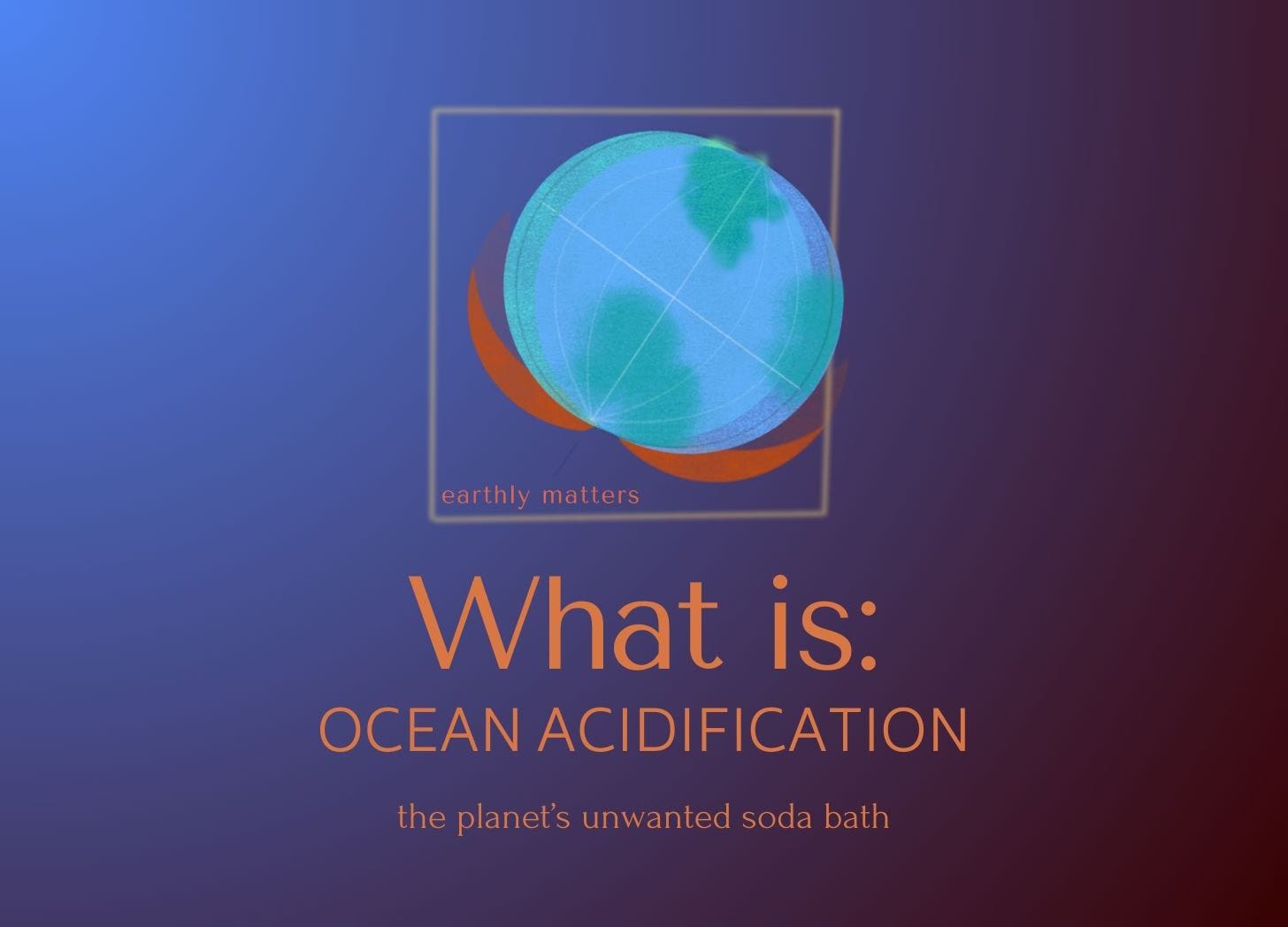Imagine: you’re a fish. You’re chilling in the ocean, minding your own business, when suddenly, the water starts feeling... off. Maybe a little tangy. Maybe your favorite coral hangout spot is looking kinda bleached. And before you know it, your shellfish friends are struggling to grow shells, and everything tastes like regret. Welcome to ocean acidification, where the ocean is slowly turning into something resembling sad, over-carbonated soda.
Here’s the science-y part: The ocean absorbs about 30% of the CO₂ we pump into the atmosphere (NOAA). Normally, that’s fine—it’s been doing this forever. But thanks to our exceptional fossil fuel usage, the ocean is now absorbing way too much CO₂, triggering a chemical reaction that lowers its pH and makes the water more acidic. Think of it like adding lemon juice to milk: things get weird, fast.
Who cares? Iliusi and I. We love the seas, oceans, and all watercreatures. And acidic oceans spell disaster for marine life. Shell-building creatures like oysters, clams, and corals suddenly find themselves in a construction crisis—their shells literally start dissolving because the water is too acidic to form proper calcium carbonate structures (IPCC). Imagine trying to build a house, but the bricks keep disintegrating in your hands. That’s what shellfish are dealing with.
And it’s not just them. Fish are also freaking out, with some species experiencing changes in behavior, growth, and even their ability to sense predators (Smithsonian). Which means... bad news. For everyone. But especially for our salmon friend from precious The Chemical Brothers’ “The Salmon Dance”:
How do we un-fizz the ocean, you ask? Good news: we actually can stop this, but it requires cutting CO₂ emissions like we mean it. That means:
Less fossil fuels, more renewables—the less CO₂ in the air, the less the ocean has to deal with.
Restoring marine ecosystems—seagrasses and mangroves actually suck up carbon dioxide and help buffer acidification.
Global policy changes—because the ocean covers 70% of the planet, and maybe, just maybe, we should stop treating it like a garbage disposal.
We’re basically reenacting Titanic, except this time, the whole ocean is the sinking ship. Marine life is Jack, clinging to the last unacidified reef, while humanity (playing Rose) debates whether we should do something or just watch. Spoiler: There’s room on the door, people. We just need to cut emissions and stop letting the ocean take the fall for our CO₂ addiction.





